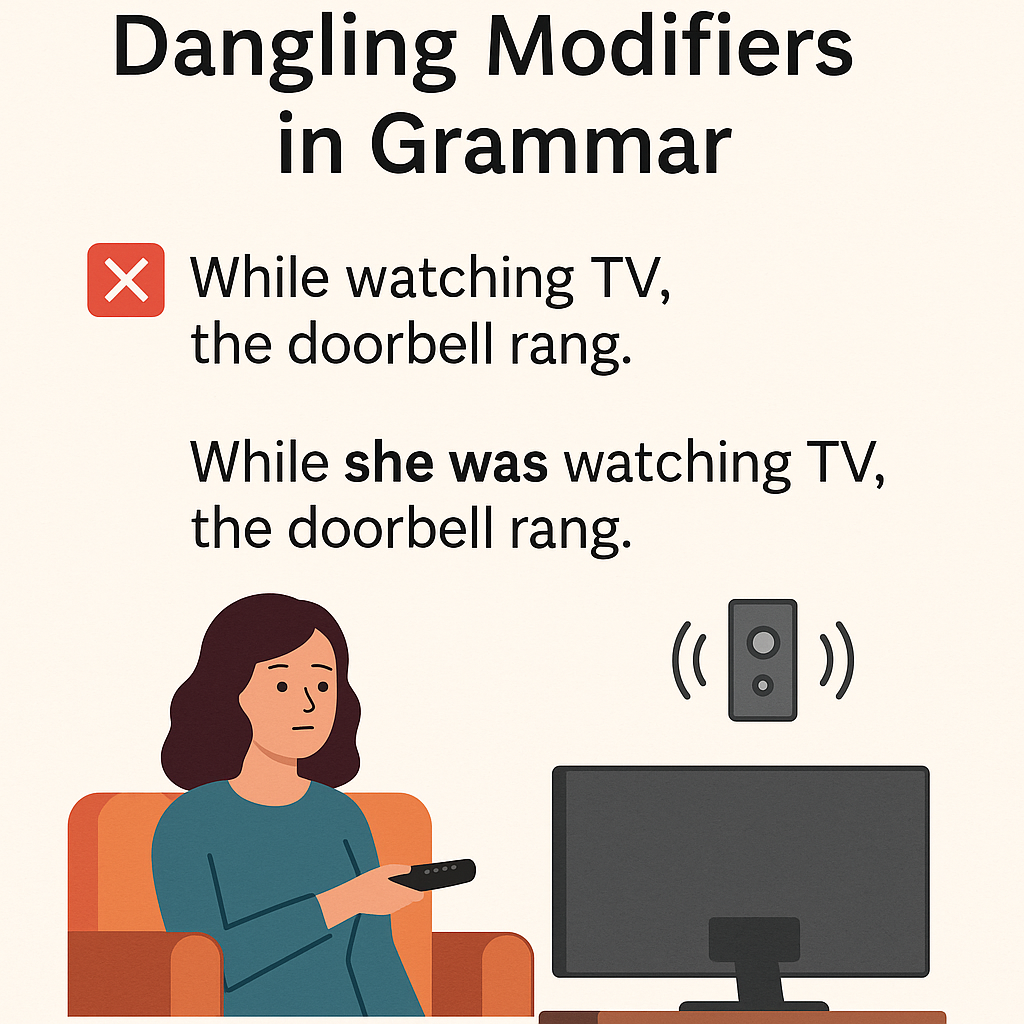Dangling Modifiers in Grammar-Grammar Puzzle Solved-(44)
Understanding dangling modifiers in grammar is essential for writing clearly and effectively. These errors occur when a modifier is not logically or grammatically connected to the word it describes. As a result, the sentence becomes confusing or unintentionally humorous. Writers often use modifiers to add detail, but when the subject is missing or misplaced, the entire meaning of the sentence changes.
Let’s begin with a simple example.
Walking through the forest, the birds sang loudly. (Incorrect)
This sentence wrongly suggests that the birds were walking. However, the intended subject was probably a person.
Walking through the forest, she heard the birds singing loudly. (Correct)
The issue with dangling modifiers in grammar is that they leave the reader wondering who or what the modifier refers to. These modifiers usually appear at the beginning of a sentence. To correct them, always place the modifier next to the noun it describes.
Here is another confusing sentence:
After eating all night, the homework was still incomplete. (Incorrect)
This version implies that the homework ate all night. Clearly, that’s not logical.
After eating all night, he still had not completed his homework.(Correct)
To avoid such confusion, always follow these steps:
- Identify the modifier in the sentence
- Make sure the noun it describes appears right after the modifier
- Rearrange the sentence if necessary
Correcting dangling modifiers in grammar is not difficult. However, writers must carefully review their writing. Ask: Who is doing the action described in the modifier? If the answer is not clear, then revision is needed. This simple habit will prevent awkward or incorrect sentences.
Consider one last puzzle:
While watching TV, the doorbell rang. (Incorrect)
(Who was watching TV?)
While she was watching TV, the doorbell rang. (Correct)
When modifiers dangle, they confuse the message. Fixing them brings clarity and precision. Therefore, always revise sentences to keep modifiers close to the words they modify.

If by Rudyard Kipling:
https://englishwithnaeemullahbutt.com/2025/06/13/if-by-rudyard-kipling-questions-answers/
Difference Between Take Tea and Drink Water: https://grammarpuzzlesolved.englishlitnotes.com/difference-between-take-tea-and-drink-water/
Ernest Hemingway as a Modern American Writer:
https://americanlit.englishlitnotes.com/ernest-hemingway-as-a-modern-american-writer/
Literary Genius of John Dryden in the Restoration Age:
https://englishlitnotes.com/2025/06/28/literary-genius-of-john-dryden/
For grammar lessons, visit ChatGPT to explore the platform and interact with the AI: https://chat.openai.com
Discover more from Grammar Puzzle Solved by Naeem Ullah Butt
Subscribe to get the latest posts sent to your email.